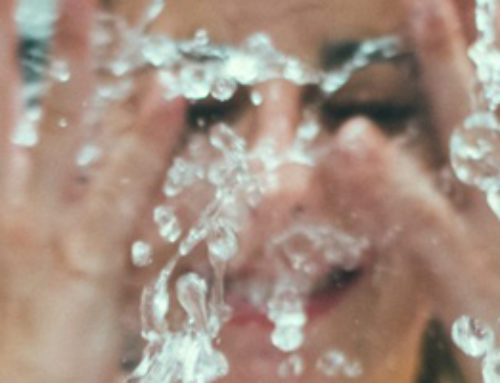Have you noticed over the past week or so that your skin seems drier? You’re not the only one. Dry skin is an extremely common complaint that affects up to 40% of us. Interestingly, the paler your skin, the drier it’s likely to be although science hasn’t yet discovered precisely why.
I’m sure you’ve already guessed that the changing weather might be causing your drier skin. But why does winter make our skin drier? Well, there’s something in the air. Outside, it’s getting colder, drier and windier while inside, central heating parches the atmosphere, meaning moisture evaporates faster from the skin surface. This ‘double whammy’ significantly lowers the water content of the skin’s horny layer. So what does that mean, exactly?
The skin is composed of three main compartments – from the bottom up, the subcutis, or deep skin ‘cushion’ of fatty tissue, the dermis of firm connective, supportive tissue and the epidermis, the skin’s outer protective layer. Most surface signs of ageing such as wrinkles and loss of elasticity begin deep in the dermis. But it’s the epidermal top layer which regulates water homeostasis – the skin’s moisture quota. In most parts of the body, the epidermis is paper-thin and it is the most superficial sheet of the epidermis – the stratum corneum, or ‘horny layer’ that plays the most crucial role.
Think of this horny layer as a microscopically tiny mortar/brick wall. The bricks are flat, horny dead skin cells and the mortar consists of lipids – ceramides, free fatty acids and cholesterol – which cement them together. This protective horny barrier has two key functions – to keep environmental hazards out and to keep water in. And it usually does both pretty well.
But certain internal and environmental conditions can reduce the lipid content between cells, so that water evaporates more easily from the skin surface. A genetic tendency to dry skin, hormonal influences, metabolic diseases (an underactive thyroid gland, say, or diabetes), impaired kidney function and, of course, age all compromise skin lipids. Medication such as Vitamin A acid tablets and drugs that lower cholesterol as well as certain blood pressure lowering drugs won’t help. Neither does an unbalanced diet, excessive weight loss or sadly, increasing age.
So if you are suffering from dry skin and ‘winter itch,’ here’s the strategy. Try to reduce contact with water and limit your use of soap and detergents. If you’re wrapping up against the chill, avoid scratchy fabrics such as wool and opt for soft thermal cottons and fleeces instead. And give that stressed, horny skin layer a helping hand. A lipid-rich moisturizer will help to reinforce the skin’s protective barrier, minimize water loss and calm itching instantly. My top tip is to apply it when your skin’s still damp from the shower to trap even more moisture in the surface layers. Now that’s a soothing thought.




